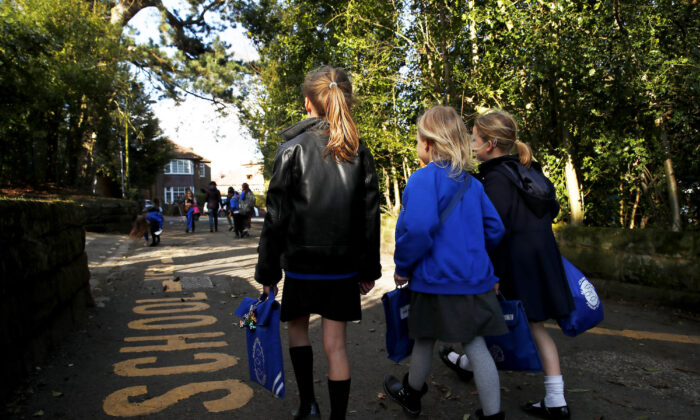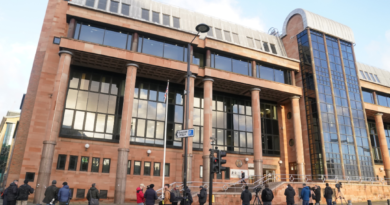Shadow Education Secretary Labels VAT on School Fees as ‘Harmful, Disruptive, and Divisive’
The government has indicated that most private schools will absorb some of the new tax charges themselves to make fees accessible to parents.
The shadow education minister has criticized the government’s decision to implement VAT on private school fees starting in January, labeling it a “destructive, disruptive, and divisive education tax.”
Addressing the Conservative-led Opposition Day debate, Damian Hinds urged the new Labour administration to postpone the “unrealistic” implementation date, conduct an impact assessment, and reconsider the entire tax proposal.
Hinds remarked in the House of Commons chamber: “This Government is already showing signs of chaos. This destructive, disruptive, and divisive education tax will disrupt the education system.”
The shadow secretary of state for education voiced concerns that the policy would strain local state schools already at capacity and exacerbate pressures on special education needs and disability (SEND) provision, especially affecting children attending independent schools.
Other participants in the debate from both Independents and Liberal Democrats expressed worries about the impact on private faith schools, local communities, and military families who rely on independent schools.
Prior to the 2024 election, Labour had pledged to increase VAT on independent school and boarding fees. However, the sudden announcement by the new government imposing these measures with only a five-month notice, instead of September 2025 as planned, was deemed “deliberately destructive” by the Independent Association of Prep Schools.
Charitable private schools will also lose their business rates relief starting from April.
‘Politics of Envy’
Conservative MP Dame Priti Patel criticized Labour’s policy as “dogmatic and rooted in the politics of envy,” stating, “It comes from a self-serving socialist Government that are ignorant and blind to the harm that it will lead to for families up and down the country.”
Like Hinds, Patel urged for an impact assessment and expressed concern about the impact of students transitioning from private to public schools on local state schools.
“The increase in student numbers will affect state schools, leading to larger class sizes. We need transparency and honesty about this. Class sizes in state schools will grow,” noted the former Conservative minister.
Alicia Kearns described the measures as a “cruel, vindictive policy,” highlighting the impact on families in her Conservative constituency of Rutland and Stamford, where several independent schools serve a significant number of students, especially those from military families and those with SEND.
Kearns pointed out the lack of available state school places in Rutland for certain grades and SEND students.
Stuart Anderson, the Conservative MP for South Shropshire, expressed concern about the impact on military families in his constituency, potentially leading to personnel leaving the armed forces.
Some military personnel stationed abroad opt to educate their children in boarding schools at home, especially if English schooling is unavailable in their host countries.
Conservatives Defeated
Treasury Minister James Murray affirmed that the government would stick to the January 2025 implementation date for the policy. He justified the timeline as necessary to generate funds quickly to support education priorities for state schools nationwide. He reassured that the government had thoroughly assessed the impact of the proposals during policy development.
During the election, Labour pledged that the funds raised would fund additional specialist teachers, expand nursery provision, and provide mental health specialists in every school, among other commitments.
Defending the government’s decision, Murray dismissed concerns about overwhelming local schools with former private school students, asserting that the impact would likely be minimal, with most transitions occurring at natural educational milestones like primary to secondary school. He expressed confidence in the state sector’s capacity to accommodate additional pupils and reassured that the policies would not significantly disrupt the state education system.
He anticipated that “most private schools will absorb a significant portion of the new VAT charges, making fee increases manageable for parents.”
Regarding military families, the treasury minister assured ongoing monitoring of policy changes’ impact on serving military personnel, with any adjustments factored into the continuous spending review.
MPs voted 363 to 190 against the Conservatives’ motion to publish an impact assessment on the policy ahead of the October 30 Budget.





